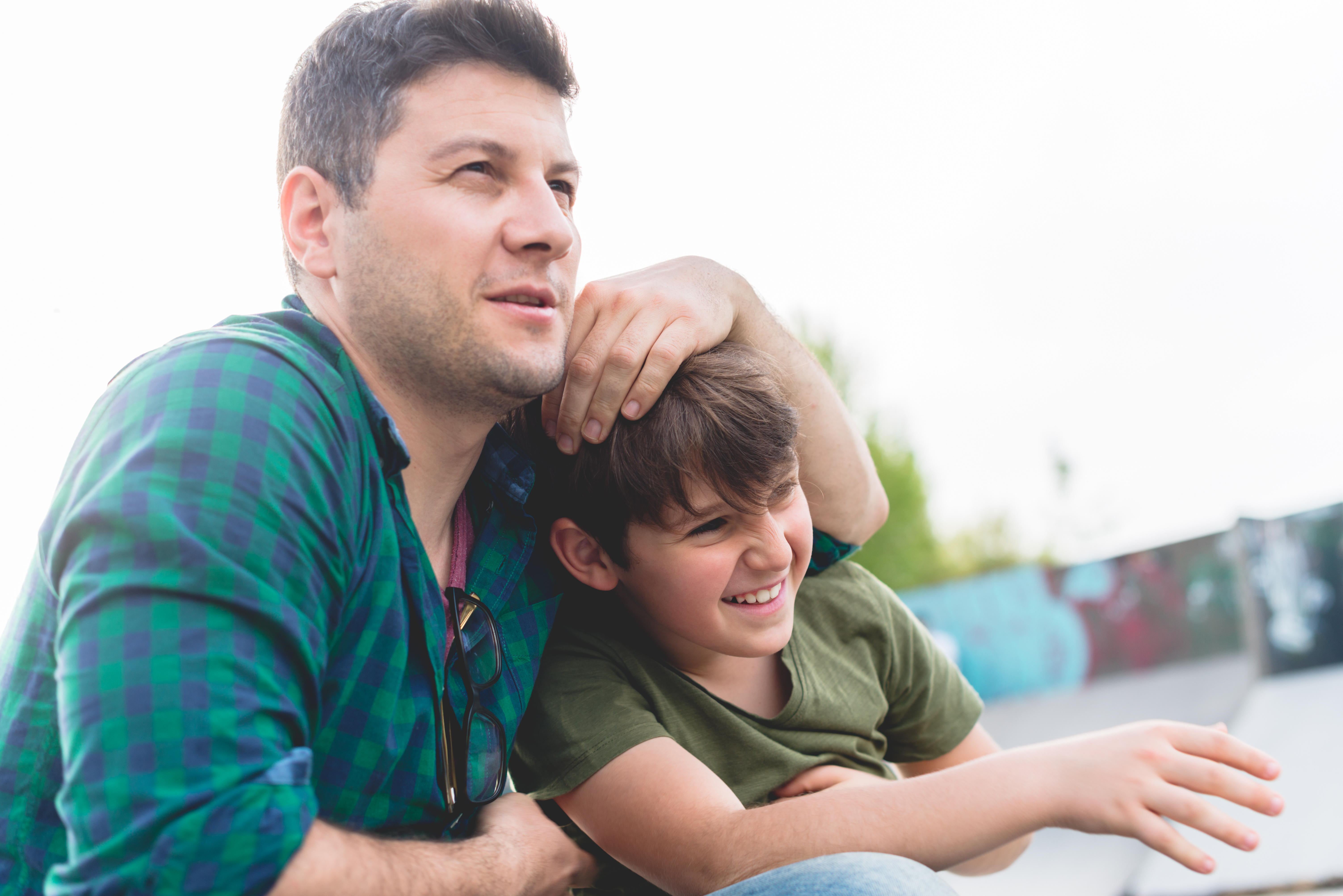 Return to Articles
Return to Articles
10.01.2025
Heart & Hope: A Family Violence Intervention Program

The Heart & Hope Program, developed by University of Nevada, Reno Extension faculty, provides survivors of past domestic violence with resources and skills to strengthen family relationships and to have hope for the future.
Developed in 2015, this 9-week community-based education program is offered two times a year, spring and fall, in Elko, Nevada, and to-date has served 68 families. The goal of the program is to build healthy home environments in order to break the cycle of domestic violence.
During workshops, adults, youth and children join their peers in breakout groups with program facilitators trained in child, youth and family development. They complete developmentally appropriate activities and then come together as a large group to complete family-based activities, practicing skills learned in their breakout groups.
The program helps parent victims gain parenting skills and confidence, build resilience for themselves and their children, avoid becoming victims in future relationships, strengthen family relationships and envision hope for the future.
The program helps children, youth, and teens build social and emotional skills and help prevent them from becoming perpetrators or victims in the future.
Program topics include communication, emotions, child development, parenting styles, positive guidance, problem-solving, friendship skills, stress management, sparks, teen dating violence prevention, and healthy relationships.
Parent victims of past domestic violence and his or her children ages 0-18 may be eligible to participate. Additionally, caregivers of children exposed to domestic violence (e.g. foster parents) and parents exposed to domestic violence as children in their families of origin may be eligible to participate.

According to the Nevada Attorney General’s Office , domestic violence is a “violent crime committed in the context of an intimate relationship.” It may include patterns of abuse such as physical, sexual, psychological, financial and/or stalking.
Domestic violence is a serious public health concern that affects individuals in every community regardless of sex, gender identity, race, ethnicity, religiosity, education, or economic status. A Centers of Disease Control (CDC) national report revealed of U.S. adults age 18 and older, 47% of women and 42% of men have experienced any form of physical, sexual intimate partner violence (IPV) or stalking by an intimate partner in their lifetime.
Seven percent of women and men experienced this type of victimization within the 12-months prior to the survey. However, women were more likely than men to experience any form of physical, sexual IPV or stalking in their lifetime and a violence-related impact, 41% and 26% of the populations respectively. The most commonly reported violence-related impacts for women and men were injuries (33% and 20%) and PTSD symptoms (33% and 14%).
Childhood domestic violence (CDV) describes children’s exposure to their parents’ or caregivers’ intimate partner violence. Children may witness the violence directly such as being held or in the room or trying to intervene while the violence is occurring.

They may also witness the violence indirectly such as seeing injuries, broken furniture, or feeling the strained emotional states of family members after the violence occurred. The National Survey of Children’s Exposure to Violence reveals 25% of youth aged 14-17 have witnessed a parent assault another parent or caregiver in their lifetime.
The effects of domestic violence may include PTSD, chronic disease, depression, anxiety, substance use, and miscarriages among adult victims to premature delivery, low birth weight, developmental delays, detachment, shame, guilt, difficulty making friends, sensation-seeking behaviors, negative coping skills, and revenge fantasies among children, youth, or teens.
These effects may remain long after the abuse stops. Individual and environmental factors may mitigate negative outcomes for victims such as age, temperament, length and severity of abuse, and the availability of resources or support systems.
The annual economic burden of intimate partner violence on the U.S. population is estimated to be $594 billion in 2014 U.S. dollars.
An urgent need exists to improve awareness, screening/identification, case management practices, and prevention/intervention services due to the long-lasting impact on the well-being of not only children and families but also communities and societies at-large.
Fortunately, there are community resources for domestic violence victims in Elko County:
- City of Elko Police Department Domestic Violence Systems Advocate (775-777-7309)
- Committee Against Domestic Violence (775-738-9454)
- University of Nevada, Reno Extension Heart & Hope Family Violence Intervention Program (775-340-8360)
- University of Nevada, Reno Extension Domestic Violence High Risk Team (DVHRT) (775-384-4593)
- Inter-Tribal Council (ITCN) of Nevada Family Violence Prevention Project (775-748-1380)
If you know people impacted by domestic violence (or see signs of possible domestic violence) there are several steps you can take to be a resource for them.
First, talk about it and listen without judgement. Acknowledge their feelings and the complexity of the situation. Thank them for opening up with you.
Second, offer words of encouragement and hope. Remind them that they do not deserve the abuse and the abuse is not their fault. Third, encourage them to reach out to a domestic violence program such as the resources listed earlier. Domestic violence victims may benefit from creating a safety plan with a domestic violence advocate. Offer to call the program’s phone number together if that is what it takes.
Fourth, follow up with them regularly. Resist the urge to force a “solution,” doing so may jeopardize the friendship and leave them feeling more isolated than before.
Remember, successfully leaving a domestic violence relationship may take multiple attempts. The availability of resources and support systems is the key.
To learn more about Heart & Hope and register go online to the website. Or contact Julie Woodbury, program coordinator, by phone at 775-340-8360 or email at [email protected].
Pull quotes
“The true measure of success is to break the abuse cycle, … rather than being held down by the past. Heart & Hope offers families an opportunity to reach for a brighter future.” —Tyler Ingram, Elko County District Attorney
“I was so lost before this program. I felt like a failure of a woman and mother. This program helped me regain my sanity and confidence that I can do this.” —2019 program participant






